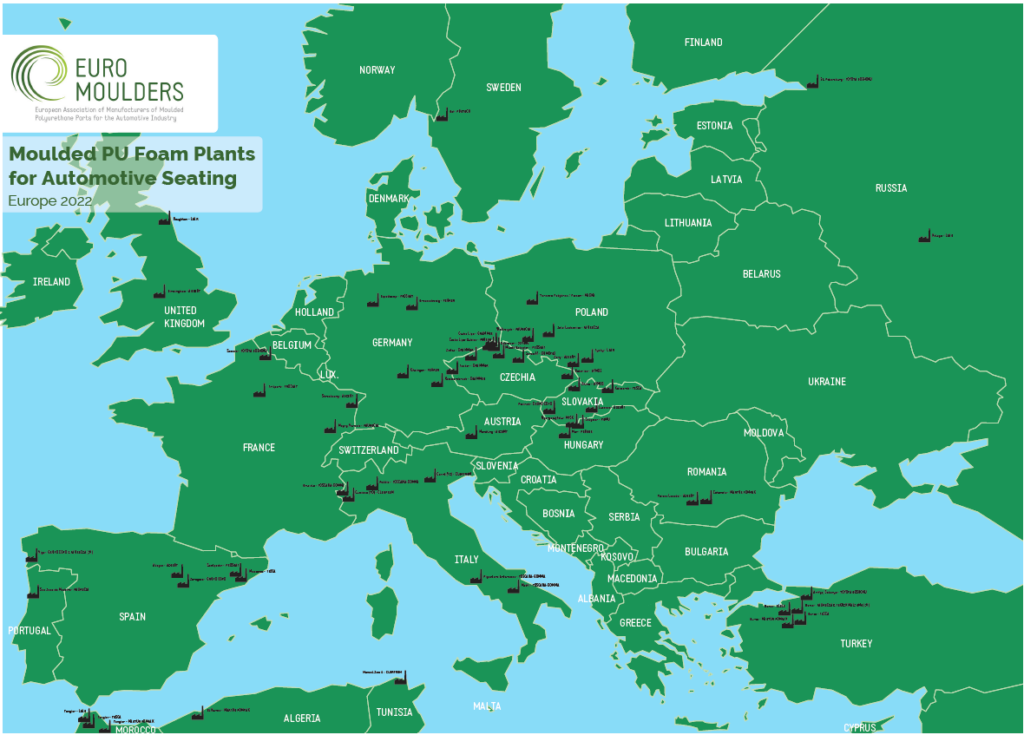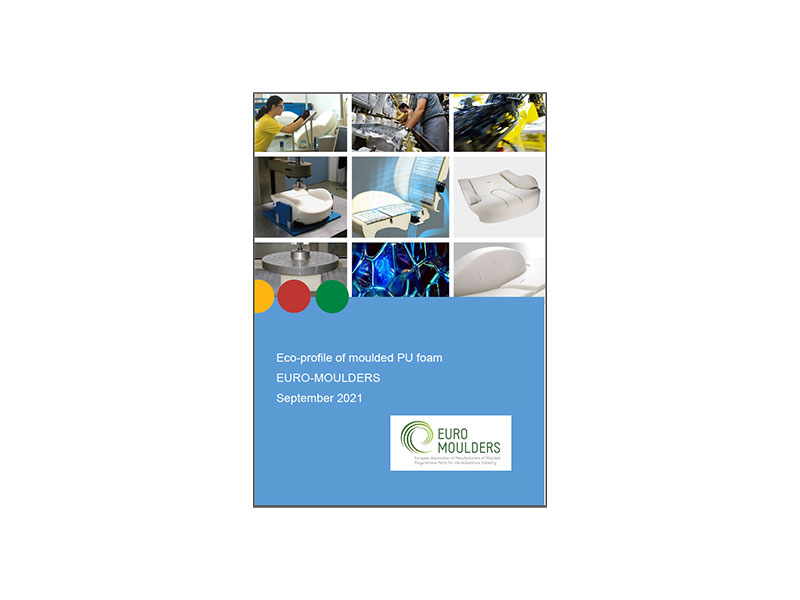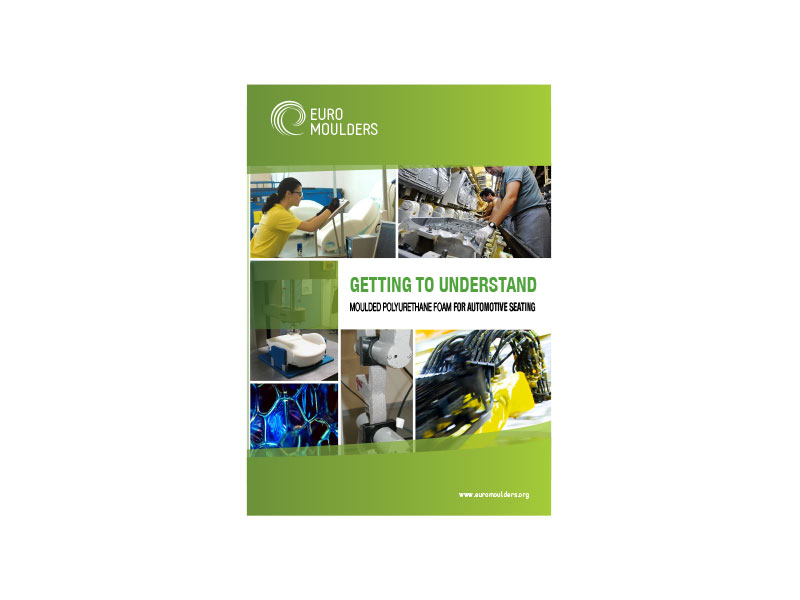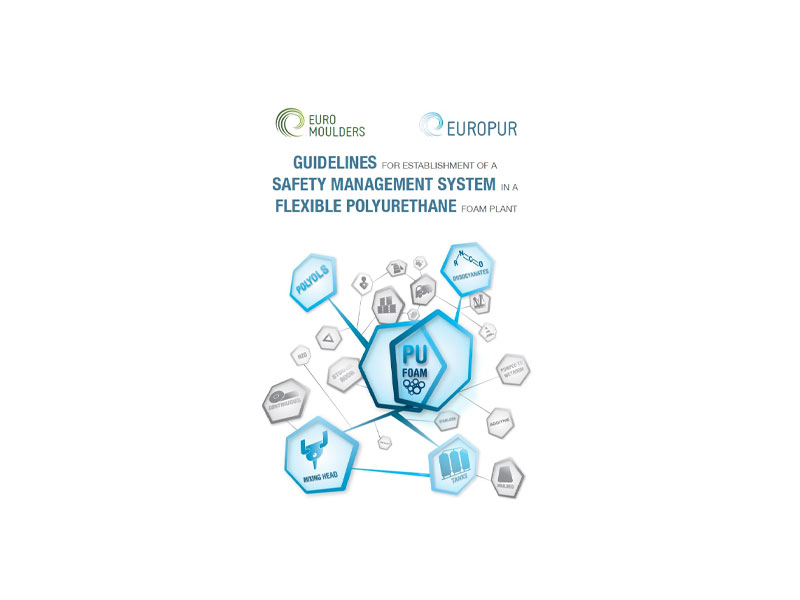The Mass Balance Approach – An Ideal Way to Reduce the Carbon Footprint of Polyurethanes in the Automotive Sector

This document is aiming at explaining why chemicals introduced via the mass balance approach are the ideal way to integrate more sustainable content (bio-based, bio-circular, or recycled) into polyurethanes for vehicle interiors. Relatively general in nature and ‘lighter’ in style, it is suited for a non-specialist audience, but can also be relevant for environmental professionals, […]
Map of Moulded PU Foam Plants for Automotive Seating in Europe

Our map of flexible moulded polyurethane foam plants for automotive seating is now available. In total there are 58 factories, most of them operated by our member companies. Unsurprisingly, most plants are located in Central Europe, close to car factories. EURO-MOULDERS’ members can order printed copies from the Secretariat.
Eco-profile of moulded PU foam

The Eco-profile of moulded Polyurethane foam (PU) provides environmental performance data representative of the average European production. The data in the documents tells you what input is required and output produced for making 1kg of moulded PU foam (cradle-to-gate). Industry data for the production of moulded PU foam had been collected from the following companies: Adient, Faurecia, […]
Digitalisation – opportunities for the flexible foam industry
Article published in PU Magazine – Vol. 15, No 3 – June/July 2018
EURO-MOULDERS publishes guide on PU foam in automotive seating

EURO-MOULDERS, the European Association of Manufacturers of Moulded Polyurethane Parts for the Automotive Industry, has published a new guide entitled “Getting to understand moulded polyurethane foam for automotive seating”. The aim of this document is to enlighten customers of moulded polyurethane foam cushion producers in the automotive supply chain about the specificities linked to the […]
Safety guidelines for PU foam production

EUROPUR, the European Association of Flexible Polyurethane Foam Blocks Manufacturers, and EURO-MOULDERS, the European Association of Manufacturers of Moulded Polyurethane Parts for the Automotive Industry, have published Guidelines for the Establishment of a Safety Management System in a Flexible Polyurethane Foam Plant. This document, drafted by the joint Plant and Workers Issues Working Group of both […]
EU PU flexible foam market report 2015
Material Information Data Sheet for PU flexible foam
PU foams are not considered to be hazardous products nor mixtures of dangerous substances. They are industrial polymers and “articles” under the REACH Regulation. As such it is not needed to provide safety data sheets to customers. Nevertheless, as some customers may require such information, EUROPUR has developed a “Material information data sheet for PU […]
EU PU flexible foam market report 2014
Ward Dupont, President of EUROPUR, presented the market outlook for flexible foam and the main markets foam is used in (bedding, furniture and automotive) at EUROPUR and EURO-MOULDERS’ annual event in June 2014.


